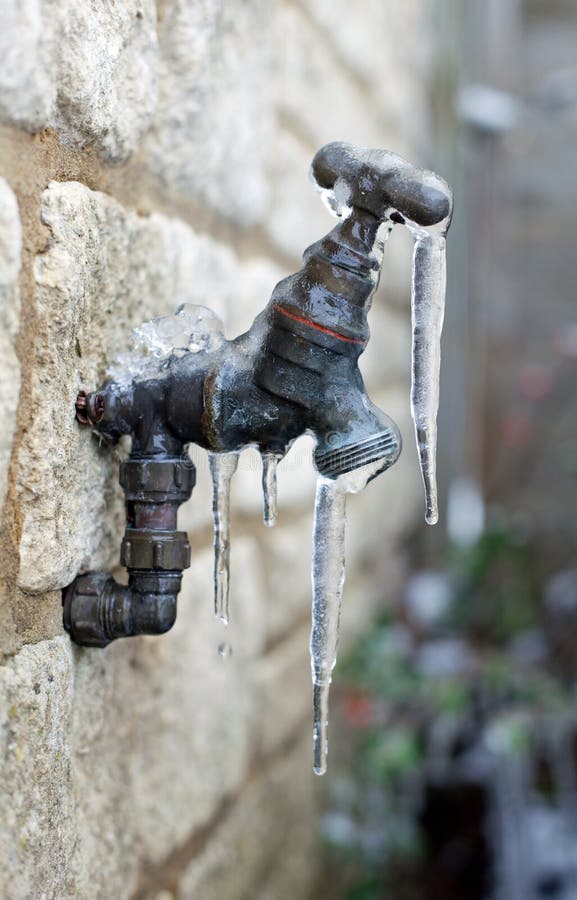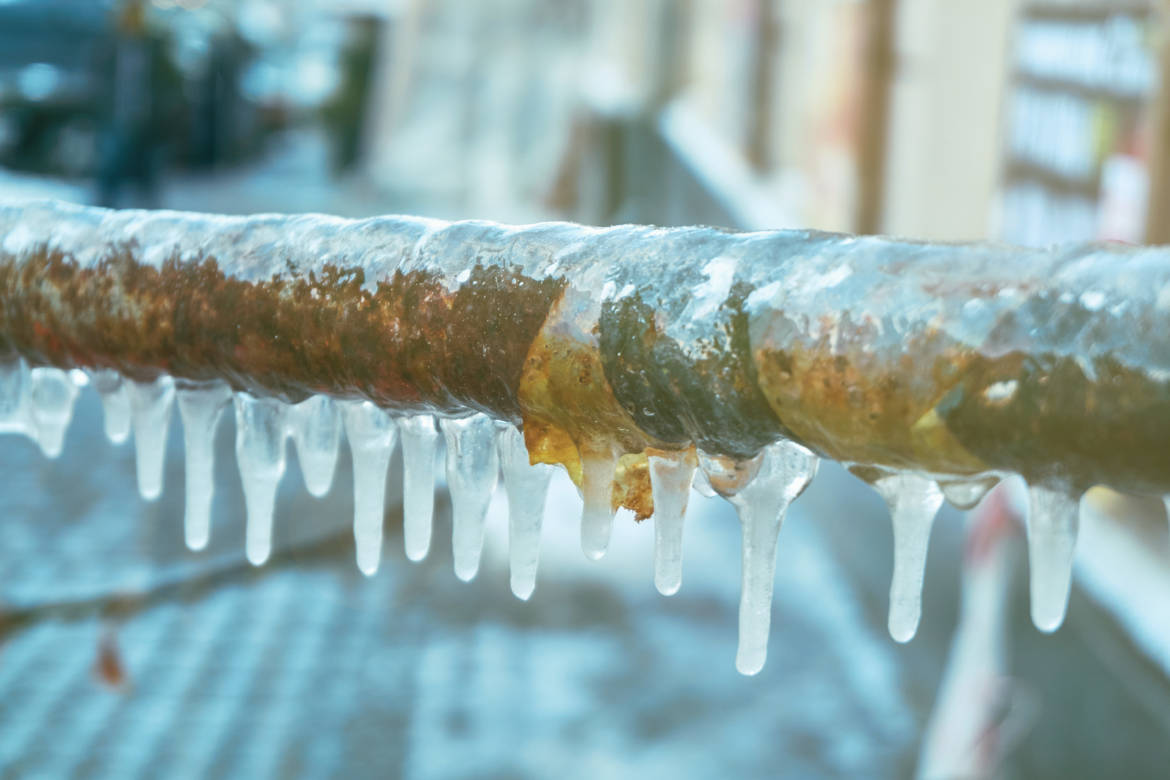Were you trying to locate ideas involving Helpful Tips to Prevent Frozen Pipes this Winter?

Cold weather can damage your pipes, particularly by freezing pipes. Right here's exactly how to avoid it from taking place and what to do if it does.
Intro
As temperature levels decrease, the danger of icy pipelines increases, potentially bring about costly repairs and water damages. Recognizing exactly how to prevent icy pipelines is vital for house owners in cold environments.
Prevention Tips
Shielding prone pipes
Wrap pipelines in insulation sleeves or use warmth tape to safeguard them from freezing temperatures. Concentrate on pipes in unheated or external locations of the home.
Home heating techniques
Keep indoor areas sufficiently heated up, specifically locations with pipes. Open up closet doors to enable warm air to flow around pipelines under sinks.
Just how to identify frozen pipes
Seek reduced water flow from taps, uncommon smells or sounds from pipes, and visible frost on revealed pipelines.
Long-Term Solutions
Architectural modifications
Take into consideration rerouting pipelines far from outside wall surfaces or unheated locations. Include extra insulation to attics, basements, and crawl spaces.
Updating insulation
Buy high-grade insulation for pipelines, attic rooms, and wall surfaces. Proper insulation helps maintain consistent temperatures and reduces the threat of icy pipelines.
Safeguarding Outside Pipes
Garden hoses and exterior faucets
Detach and drain garden tubes before winter months. Mount frost-proof faucets or cover outside taps with shielded caps.
Understanding Frozen Pipelines
What causes pipelines to freeze?
Pipes ice up when subjected to temperature levels below 32 ° F (0 ° C) for prolonged durations. As water inside the pipelines freezes, it broadens, taxing the pipeline walls and possibly triggering them to burst.
Dangers and problems
Icy pipes can result in supply of water disturbances, residential or commercial property damages, and expensive repair services. Burst pipelines can flooding homes and create extensive architectural damages.
Indicators of Frozen Piping
Recognizing frozen pipes early can stop them from bursting.
What to Do If Your Pipelines Freeze
Immediate activities to take
If you think frozen pipelines, keep faucets available to ease pressure as the ice thaws. Use a hairdryer or towels taken in hot water to thaw pipes slowly.
Verdict
Avoiding icy pipes needs proactive measures and quick responses. By understanding the reasons, indicators, and preventive measures, property owners can safeguard their pipes throughout winter.
Helpful Tips to Prevent Frozen Pipes this Winter
UNDERSTANDING THE BASICS: WHY PIPES FREEZE AND WHY IT’S A PROBLEM
Water freezing inside pipes is common during the winter months, but understanding why pipes freeze, and the potential problems it can cause is crucial in preventing such incidents. This section will delve into the basics of why pipes freeze and the associated problems that may arise.
THE SCIENCE BEHIND FROZEN PIPES
When water reaches freezing temperatures, it undergoes a physical transformation and solidifies into ice. This expansion of water as it freezes is the primary reason pipes can burst. As the water inside the pipe freezes, it expands, creating immense pressure on the walls. If the pressure becomes too great, the pipe can crack or rupture, leading to leaks and water damage.
FACTORS THAT CONTRIBUTE TO PIPE FREEZING
Low Temperatures: Extremely cold weather, especially below freezing, increases the risk of pipes freezing. Uninsulated or Poorly Insulated Pipes: Pipes located in unheated areas, such as basements, crawl spaces, or attics, are more prone to freezing. Insufficient insulation or lack of insulation altogether exacerbates the problem. Exterior Wall Exposure: Pipes running along exterior walls are susceptible to freezing as they encounter colder temperatures outside. Lack of Heating or Temperature Regulation: Inadequate heating or inconsistent temperature control in your home can contribute to frozen pipes. PROBLEMS CAUSED BY FROZEN PIPES
- Pipe Bursting: As mentioned earlier, the expansion of water as it freezes can cause pipes to burst, resulting in significant water damage.
- Water Damage: When pipes burst, it can lead to flooding and water damage to your property, including walls, ceilings, flooring, and personal belongings.
- Structural Damage: Prolonged exposure to water from burst pipes can compromise the structural integrity of your home, leading to costly repairs.
- Mold and Mildew Growth: Excess moisture from water damage can create a favorable environment for mold and mildew growth, posing health risks to occupants.
- Disrupted Water Supply: Frozen pipes can also result in a complete or partial loss of water supply until the issue is resolved.
WHY CERTAIN PIPES ARE MORE PRONE TO FREEZING
- Location: Pipes located in unheated or poorly insulated areas, such as basements, crawl spaces, attics, or exterior walls, are at higher risk of freezing.
- Exterior Pipes: Outdoor pipes, such as those used for irrigation or exposed plumbing, are particularly vulnerable to freezing as they are directly exposed to the elements.
- Supply Lines: Pipes that carry water from the main water supply into your home, including the main water line, are critical to protect as freezing in these lines can affect your entire plumbing system.
- Underground Pipes: Pipes buried underground, such as those connected to sprinkler systems or outdoor faucets, can be susceptible to freezing if not properly insulated.
https://busybusy.com/blog/helpful-tips-to-prevent-frozen-pipes-this-winter/

Do you really like reading up on How To Avoid Freezing Pipes? Try leaving a short review below. We'd be delighted to listen to your reactions about this post. We hope that you come back again in the future. Sharing is good. One never knows, you may be helping someone out. Thanks for being here. Don't hesitate to check our blog back soon.
Call Today